Resources
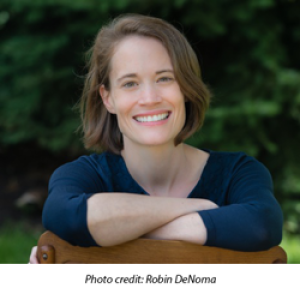
Elisabeth T. Vasko Ph.D. Assistant Professor of Theology Duquesne University In recent years, I have taught an upper-level Christology course in which we examine race, gender, and power. Sometimes my students register their dissatisfaction with reading Christology from the margins (James Cone, Kelly Brown Douglas, and Marcella Althaus-Reid) instead of the center (Anselm, Barth, von Balthasar, and Rahner). I can understand their frustration and discomfort. In the classroom, I make an effort to accept it and to take it seriously. I should also note that I teach at a university where the student population is mostly white. By and large,
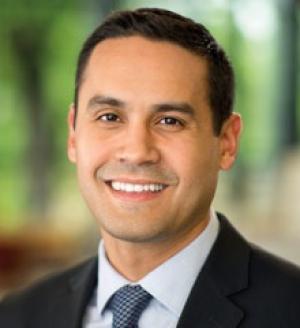
Eric D. Barreto Ferguson is revelatory. “I wanted to comment on the tragic rift that we’re witnessing,” Bob Staake says about his cover for the December 8th issue of The New Yorker, arriving next week. “I lived in St. Louis for seventeen years before moving to Massachusetts, so watching the...
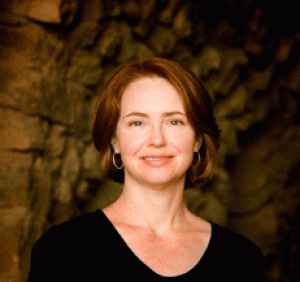
Miriam Y. Perkins, Ph.D. Associate Professor of Theology and Society Emmanuel Christian Seminary When Michael Brown was shot and killed in Ferguson, Missouri, I was reading the sermons of Martin Luther King, Jr.[1] “The tension in this city is not between white people and Negro people. The tension is at bottom between justice and injustice, between the forces of light and the forces of darkness.” “… noncooperation and boycotts are not ends themselves; they are merely means to awaken a sense of moral shame in the opponent. The end is redemption and reconciliation.” “Noncooperation with evil is as much a
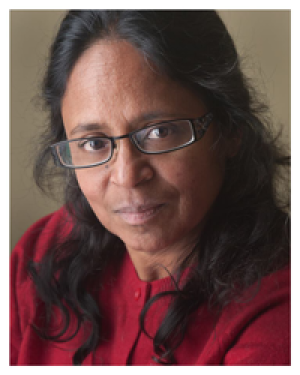
Dr. Himanee Gupta-Carlson Assistant Professor SUNY Empire State College Three stories capture my take on how race matters. Story #1 opens in a grocery parking lot. I park my car and open the door. Trying to remember what I need to buy, I do not notice the pick-up truck beside me as I step out. Then, I hear a male voice bellowing at me to close my door and stop ruining his truck. Hurriedly, I close the door. I apologize and check his vehicle for damages. The man shouts a little louder, glares at me, and revs up his engine...
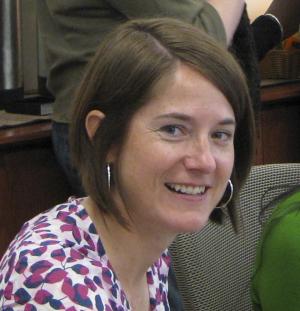
Maureen H. O'Connell, Ph.D. Associate Professor of Theology & Chair of Department of Religion LaSalle University If there is one thing I’ve learned from my 20 students in a new course, “Religion and Racism in America” this semester it’s this: how we go about engaging racism in the classroom may be just as important, if not more, than what sources we use to do so. 1. Racism is not an intellectual reality, but an experiential one. Critical race theorist George Yancy is right (not that I ever doubted him!). Racism is an embodied experience and not simply a sociological phenomenon, no...
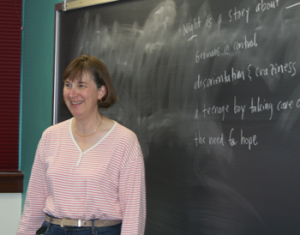
Jocelyn McWhirter, Ph.D. Associate Professor of Religious Studies Albion College The time: November 9–10, 1938. The place: Germany. The casualties: More than 7,000 Jewish shops along with 1,574 synagogues damaged or destroyed. One hundred Jews murdered; 30,000 imprisoned in concentration camps. They were the first victims of a racial purge that went on to claim more than 6 million lives. Now, 76 years after Kristallnacht, I am preparing to lead the Holocaust Studies Service-Learning Project (HSSLP). The HSSLP was founded in 1999 by students in a first-year seminar on the Holocaust. They wanted to take their learning out of the..
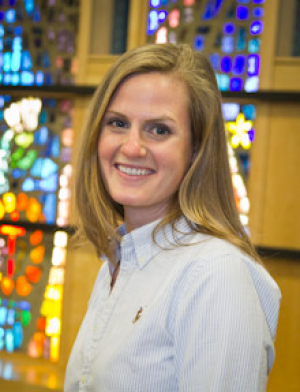
Mara Brecht, Ph.D. Assistant Professor of Theology St. Norbert College Teaching race is a boulder. And up the mountain I push it. When I teach race, I feel like Sisyphus because I never seem to get anywhere. The questions repeat and the anxieties recur each semester. It’s always the same: I know what parts of assigned texts will provoke students. I’m prepared for the discomfort, the tears, and the under-the-breath comments. I can even hear the conversations before they happen: White students indignantly protest Peggy McIntosh’s essay on white privilege: “But I had to earn what I have!” They respond...
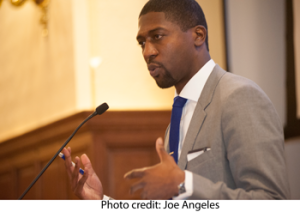
Lerone A. Martin, Ph.D. Assistant Professor of religion and politics in the John C. Danforth Center on Religion and Politics Washington University I have heard much talk about Ferguson and racial segregation in my personal life, as well as in the classroom. Conversations about Ferguson abound in my Civil Rights class this semester as well as in the broader university community. It could hardly be otherwise. We are just fifteen miles away from Canfield Drive. As a historian, I aim to help my students understand Ferguson, racial segregation, and all concomitant issues in a broader historical framework. How did we...
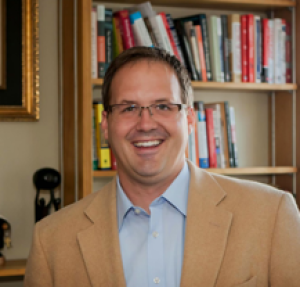
Kyle J. A. Small, Ph.D. Associate Academic Dean and Associate Professor for Church Leadership Western Theological Seminary The faculty at Western Theological Seminary (WTS) in Holland, MI recently invested itself in Willie James Jennings’ book, The Christian Imagination: Theology and the Origins of Race (Yale University Press, 2010). Three faculty members were invited to take up Jennings' claim and call, and to generate a conversation in terms of how Jennings’ work intersects with our shared task of teaching and learning. I engaged as a pastoral theologian wondering what are the pedagogical implications if we accept Jennings' book, on his own...
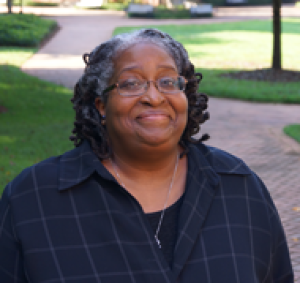
Marcia Y. Riggs, Ph.D. J. Erskine Love Professor of Christian Ethics Columbia Theological Seminary Why does an African American woman--a Womanist black liberationist religious ethicist-- in her right mind teach for twenty-three years in a historically white seminary in the South? I have asked myself this question many, many times, and most of those times in prayer on my knees to a God that I am sure is the “one that I have found in myself” and love fiercely (re: Ntozake Shange). There you have the answer: there is this call to teach that is the “fire in my bones”...